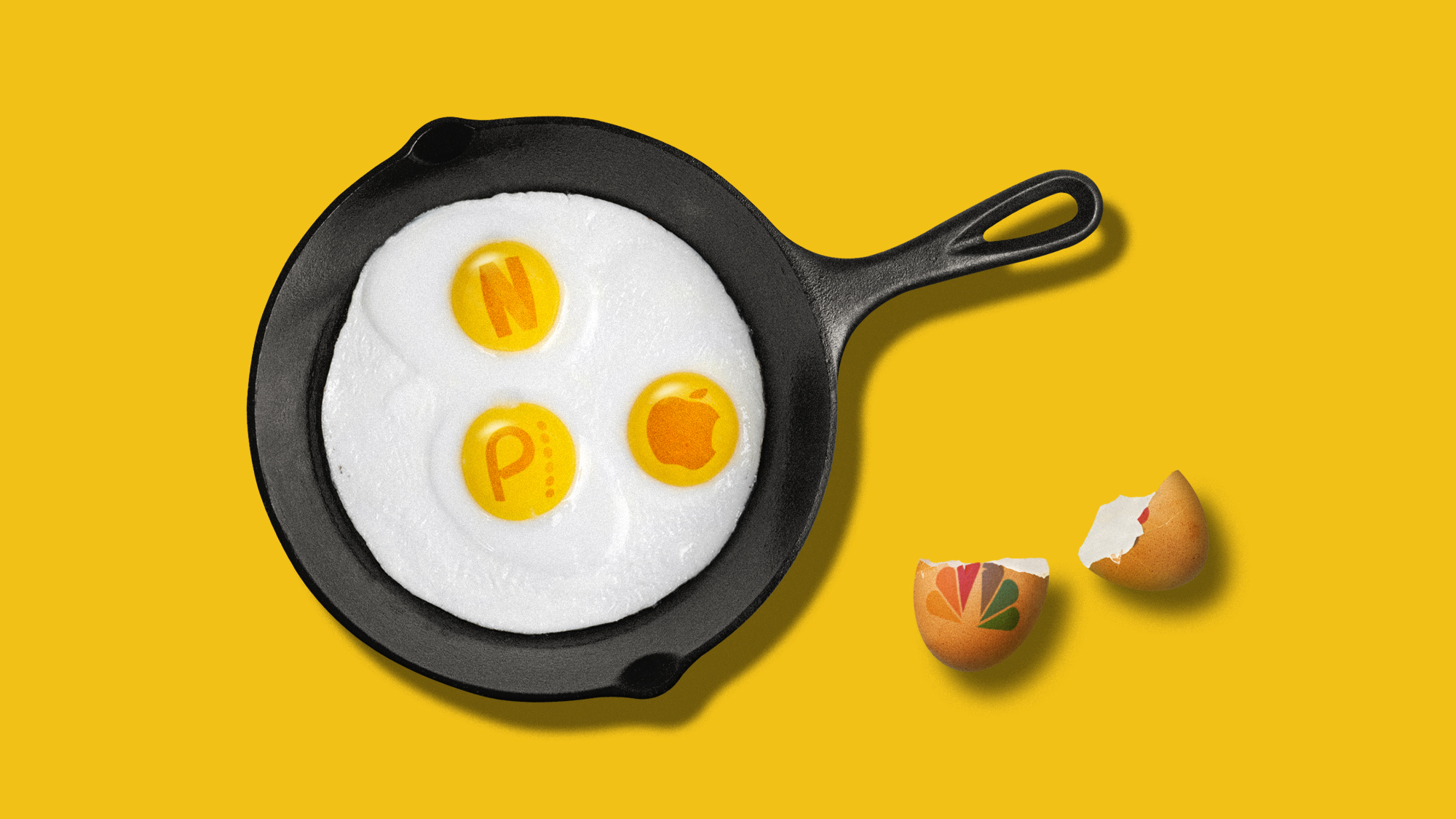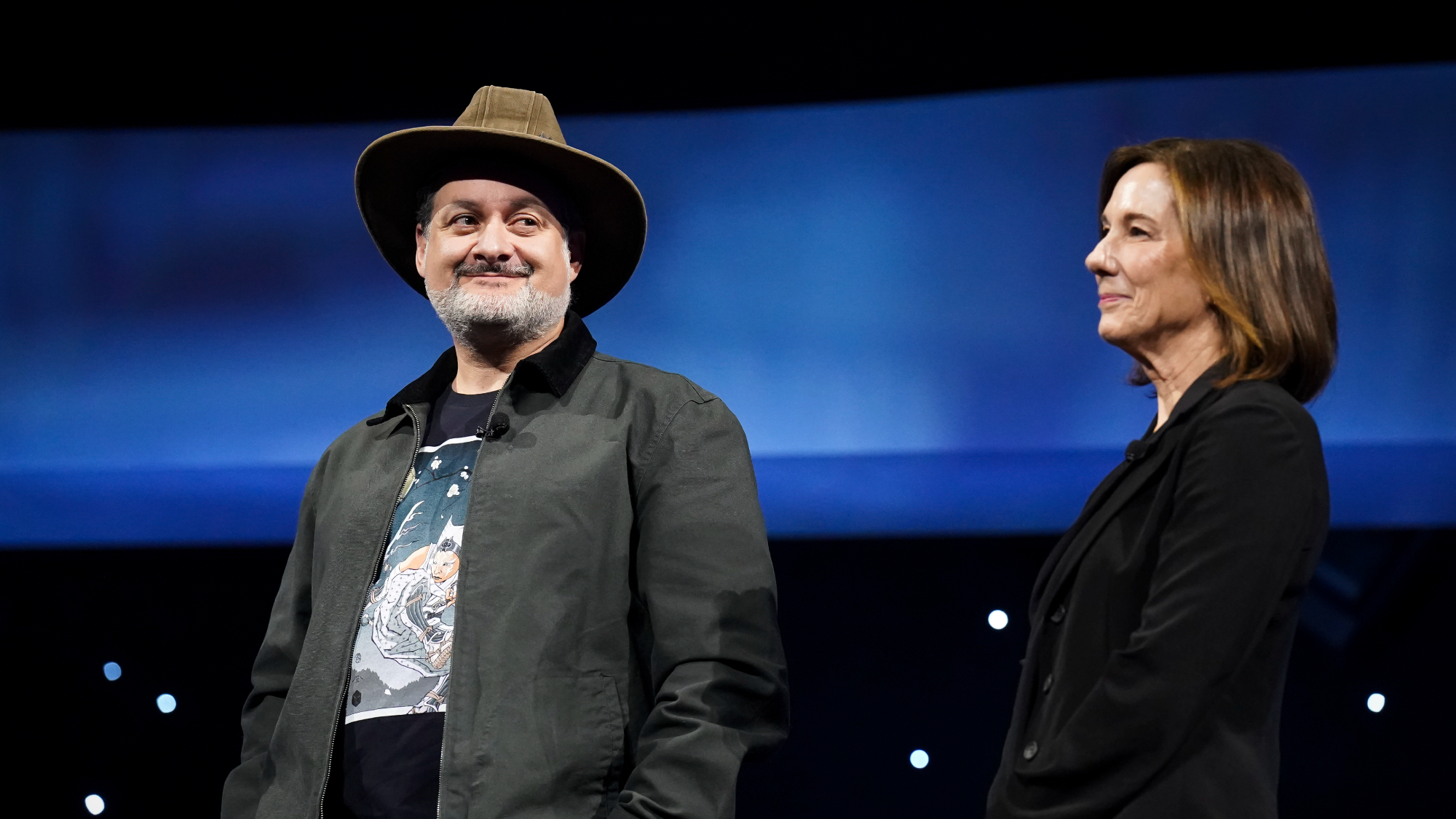Are streaming bundles reinventing cable TV?
The old-fashioned convenience of one service, one fee


A free daily email with the biggest news stories of the day – and the best features from TheWeek.com
You are now subscribed
Your newsletter sign-up was successful
The rise of streaming services like Netflix, Max and Disney+ was supposed to kill off cable. But something funny is happening on the way to the future: Streaming is starting to look a lot more like cable. Comcast said last week it would offer a "bundle" packaging Peacock, Netflix and Apple TV+ together at a discounted rate, The Guardian said, part of a strategy to reduce "churn" — customers turning streaming services on and off in the hunt for the next great binge viewing experience. Comcast's announcement came a week after Warner Bros Discovery and Disney said they would offer a similarly discounted bundle of the Disney+, Hulu and Max services.
The consolidation is a reminder to consumers "of the simplicity of what they left behind: the humble cable subscription," Slate said. Cable offered a wide array of viewing choices in one place, for one fee — the original "bundle." The streaming era farmed out those choices to a variety of platforms. But Hollywood CEOs are now betting that customers miss the old ways. "If we still need to navigate to different streaming services to hunt down our favorite shows, at least we can pay for them all at once," said Slate.
What did the commentators say?
"It's not cable, but it's not not cable either," Jacob Stern said at The Atlantic. Early streaming seemed full of promise when there were few competitors: Netflix once stood alone, offering a broad library of TV and movies for less than $10 a month. That's changed. "To watch entertainment now requires wading through a frustrating array of streaming services," Stern said. The problem? All that competition isn't all that profitable, which is why those competitors are banding together. That's probably good for consumers. "There's a reason so many people rejoiced at the prospect of cutting the cord — but cable was simple," added Stern.
The Week
Escape your echo chamber. Get the facts behind the news, plus analysis from multiple perspectives.

Sign up for The Week's Free Newsletters
From our morning news briefing to a weekly Good News Newsletter, get the best of The Week delivered directly to your inbox.
From our morning news briefing to a weekly Good News Newsletter, get the best of The Week delivered directly to your inbox.
Something is missing, though. Joined together, the streaming services are "inching closer and closer to resembling the entertainment behemoths of yesteryear," Oliver Darcy said at CNN. And yet services like Netflix — which are increasingly offering live events like sports and comedy specials — have "shown little-to-no interest in investing in either live-news or pre-taped programming." That's not good news for society. "Rebuilding the traditional cable package without news is akin to putting together a meal that includes steak, potatoes and ice cream, but not the broccoli," said Darcy.
What next?
The new Comcast bundle (called StreamSaver) will cost $15 a month, CNET said. For subscribers to the three services in the bundle, that will represent a savings of $10 a month. The Disney-Warner Bros Discovery bundle is coming this summer, and the price is not yet available — but the three commercial-free versions of its three streaming services now cost $48 a month. "A bundled offering is likely to cost less," The New York Times said.
All of this raises one question: If streaming is starting to look like cable, why not just go with cable? Streaming still has some advantages, experts say. "Some people say that this sounds just like cable," MyBundle CEO Jason Cohen told The Hollywood Reporter in March. "But the people who say that probably haven't had cable in six, seven years and don't realize how expensive cable has gotten."
A free daily email with the biggest news stories of the day – and the best features from TheWeek.com
Joel Mathis is a writer with 30 years of newspaper and online journalism experience. His work also regularly appears in National Geographic and The Kansas City Star. His awards include best online commentary at the Online News Association and (twice) at the City and Regional Magazine Association.
-
 Political cartoons for February 15
Political cartoons for February 15Cartoons Sunday's political cartoons include political ventriloquism, Europe in the middle, and more
-
 The broken water companies failing England and Wales
The broken water companies failing England and WalesExplainer With rising bills, deteriorating river health and a lack of investment, regulators face an uphill battle to stabilise the industry
-
 A thrilling foodie city in northern Japan
A thrilling foodie city in northern JapanThe Week Recommends The food scene here is ‘unspoilt’ and ‘fun’
-
 Is the US in a hiring recession?
Is the US in a hiring recession?Today's Big Question The economy is growing. Job openings are not.
-
 Lucasfilm passes ‘Star Wars’ torch to new leaders
Lucasfilm passes ‘Star Wars’ torch to new leadersSpeed Read Kathleen Kennedy is stepping down after 14 years at the company
-
 Will Trump’s 10% credit card rate limit actually help consumers?
Will Trump’s 10% credit card rate limit actually help consumers?Today's Big Question Banks say they would pull back on credit
-
 What will the US economy look like in 2026?
What will the US economy look like in 2026?Today’s Big Question Wall Street is bullish, but uncertain
-
 How will China’s $1 trillion trade surplus change the world economy?
How will China’s $1 trillion trade surplus change the world economy?Today’s Big Question Europe may impose its own tariffs
-
 How will the Warner Bros. bidding war affect the entertainment industry?
How will the Warner Bros. bidding war affect the entertainment industry?Today’s Big Question Both Netflix and Paramount are trying to purchase the company
-
 Who will be the next Fed chair?
Who will be the next Fed chair?Today's Big Question Kevin Hassett appears to be Trump’s pick
-
 Would a 50-year mortgage make home ownership attainable?
Would a 50-year mortgage make home ownership attainable?Today's Big Question Trump critics say the proposal is bad policy
